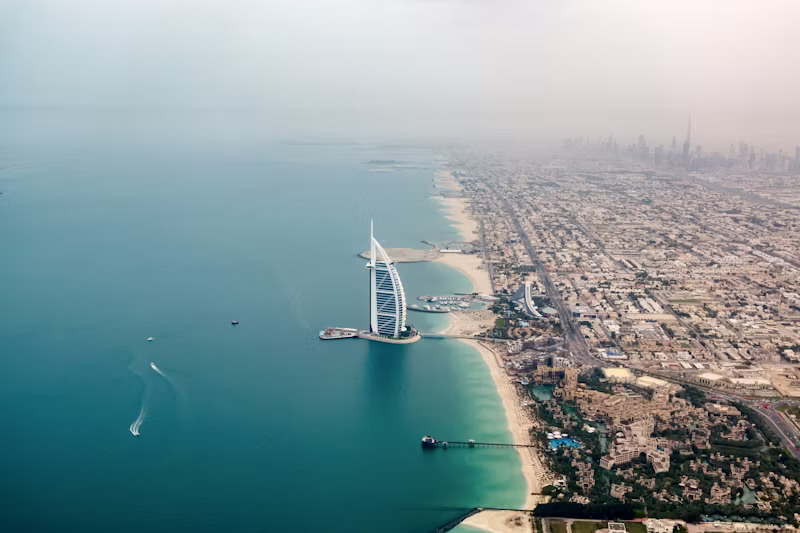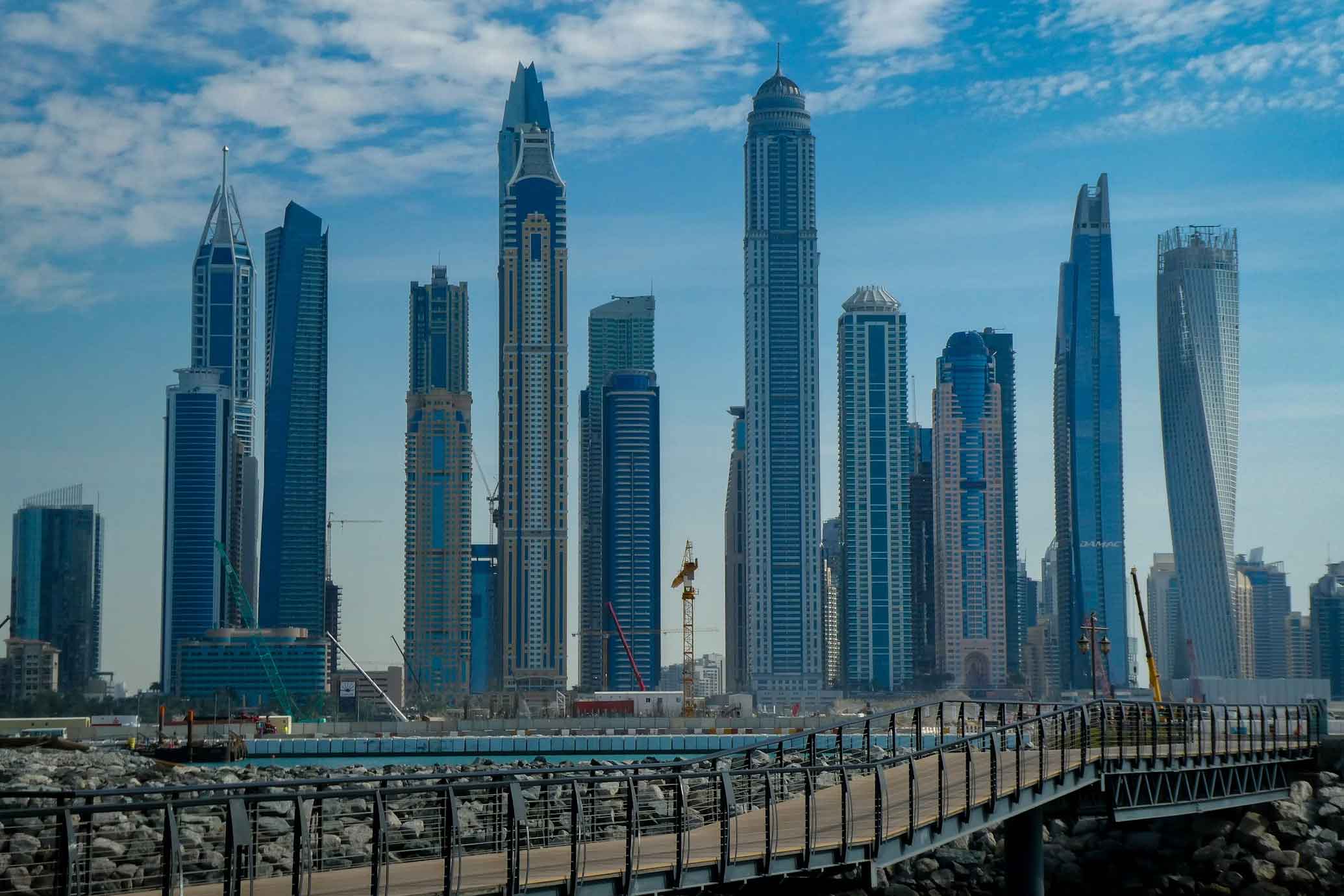As the Middle East dining climate evolves, new trends are rapidly emerging, from new cuisines to immersive entertainment. One facet of the hospitality sector in the Middle East is sustainability and plant-based eating. This trend, which has taken off around the world in recent years, has come to the Middle East with a growing tenacity as consumers prioritize health-conscious dining. Chefs and restauranteurs are bringing this concept to light from production to packaging to sourcing local ingredients through sustainable restaurant planning.
The Middle East has always had a vibrant food and beverage scene, especially in major cities like Dubai, Riyadh, and Jeddah. In the last year, these cities have seen a boom in sustainable dining. Dining out sustainably is the act of prioritizing reduced food waste, limiting water usage, green packaging, composting, and sourcing local ingredients. This can take the form of fully green restaurants or businesses taking small steps towards a cleaner future. Working with specialized hospitality accounts like Paperchase will allow you to leverage our regional experience in the Middle East and provide insight to make decisions toward a sustainable future such as changing your supplier or evaluating wastage.
 In the Middle East sustainability presents a major opportunity for restaurants to increase revenue. According to the Middle East Food Service Market: Opportunity and Industry Forecast, 2024-2034, the market size is estimated to grow from 55.65 billion USD to 158.53 billion over the next 10 years, and sustainable dining is a critical trend for consumers. A key component of this trend is health-conscious dining. Markets in the Middle East are being integrated with rising health awareness, global food trend influence, and changing lifestyles. An abundance of plant-based and vegan cafes in the region paired with a complete redesign of all to-go containers is evidence of this shift. Studies show that consumers want menus with a diverse range of nutritious offerings including vegan, gluten free, and non-alcoholic options. These menu changes don’t just make restaurants more inclusive but are also reflective of regional trends. When it comes to sustainability, technology goes hand in hand with its implementation of POS systems and online ordering, giving operators the ability to analyze their most popular and profitable menu items and capitalize on those trends. Boost your bottom line by incorporating sustainable inventory practices and recipe costing. This reduces waste and moves unused inventory. Creative menu planning is inherently sustainable because it uses all resources available without wasting food. To learn more about sustainable menu practices, read our blog on Sustainable Accounting Practices for Restaurants.
In the Middle East sustainability presents a major opportunity for restaurants to increase revenue. According to the Middle East Food Service Market: Opportunity and Industry Forecast, 2024-2034, the market size is estimated to grow from 55.65 billion USD to 158.53 billion over the next 10 years, and sustainable dining is a critical trend for consumers. A key component of this trend is health-conscious dining. Markets in the Middle East are being integrated with rising health awareness, global food trend influence, and changing lifestyles. An abundance of plant-based and vegan cafes in the region paired with a complete redesign of all to-go containers is evidence of this shift. Studies show that consumers want menus with a diverse range of nutritious offerings including vegan, gluten free, and non-alcoholic options. These menu changes don’t just make restaurants more inclusive but are also reflective of regional trends. When it comes to sustainability, technology goes hand in hand with its implementation of POS systems and online ordering, giving operators the ability to analyze their most popular and profitable menu items and capitalize on those trends. Boost your bottom line by incorporating sustainable inventory practices and recipe costing. This reduces waste and moves unused inventory. Creative menu planning is inherently sustainable because it uses all resources available without wasting food. To learn more about sustainable menu practices, read our blog on Sustainable Accounting Practices for Restaurants.
According to Asia Food Journal, the Middle East saw a spike in the prioritization of vegan and plant-based diets during the pandemic. Globally, the plant-based food market is projected to reach $120 billion in 2031 and the Asian Pacific, Middle East, and Africa all take up a major portion of this metric with the Middle East specifically estimated to have 17% year-on-year growth. Lower cholesterol and healthy blood pressure are just some of the benefits the vegan diet can foster. In the Middle East, the industry isn’t just focused on alternatives to meat, but plant-based options for milk and other products as well. According to The Food and Agriculture Organization of the United Nations, there are over 30,000 edible plant species in the world, and only around 30 are regularly used as food and the industry is ready for new solutions. When it comes to vegan and plant-based eating, most consumers prefer flavors and textures that mimic their carnivorous counterparts. Products like broad beans enhance the texture of meat alternatives while also providing a significant source of fiber and protein. Add in the right seasoning and you have a product that is delicious and healthy.
In the Middle East, the charge of sustainable eating is led by younger Millennials, Gen Z, and Gen Alpha. Studies show that younger generations recognize the impact these trends have on health, community, and the environment. For example, the census in Saudi Arabia claims that out of its population of 32.2 million, 63% is under 30 years old. Young people are the next wave of consumers, and they have the power to turn the tide of influence. These changes go hand as Middle Eastern economies continue to grow, specifically in the KSA. Saudi Arabia’s Vision 2030 is a sweeping plan to modernize the country, aiming to lessen reliance on oil, create a more dynamic sustainable society, and position Saudi Arabia as a global economic leader. This involves fostering a thriving economy through education and attracting foreign investment, while also enriching the social landscape with a focus on culture, entertainment, and improved quality of life.

In conclusion, the Middle Eastern dining scene is undergoing a significant shift towards sustainability and plant-based options. This trend, driven by younger generations’ health and environmental concerns, presents a major opportunity for restaurants to tap into a growing market. By embracing sustainable practices and offering diverse, plant-based menus, restaurants can not only contribute to a healthier planet but also boost their bottom line. As the Middle Eastern economies continue to flourish, this focus on conscious consumption is poised to become a defining feature of the region’s culinary landscape.
Looking to grow your business in this region or want a seamless global accounting solution? Visit paperchase.ac to learn more about our extensive services and get in touch with a representative.
Read more























